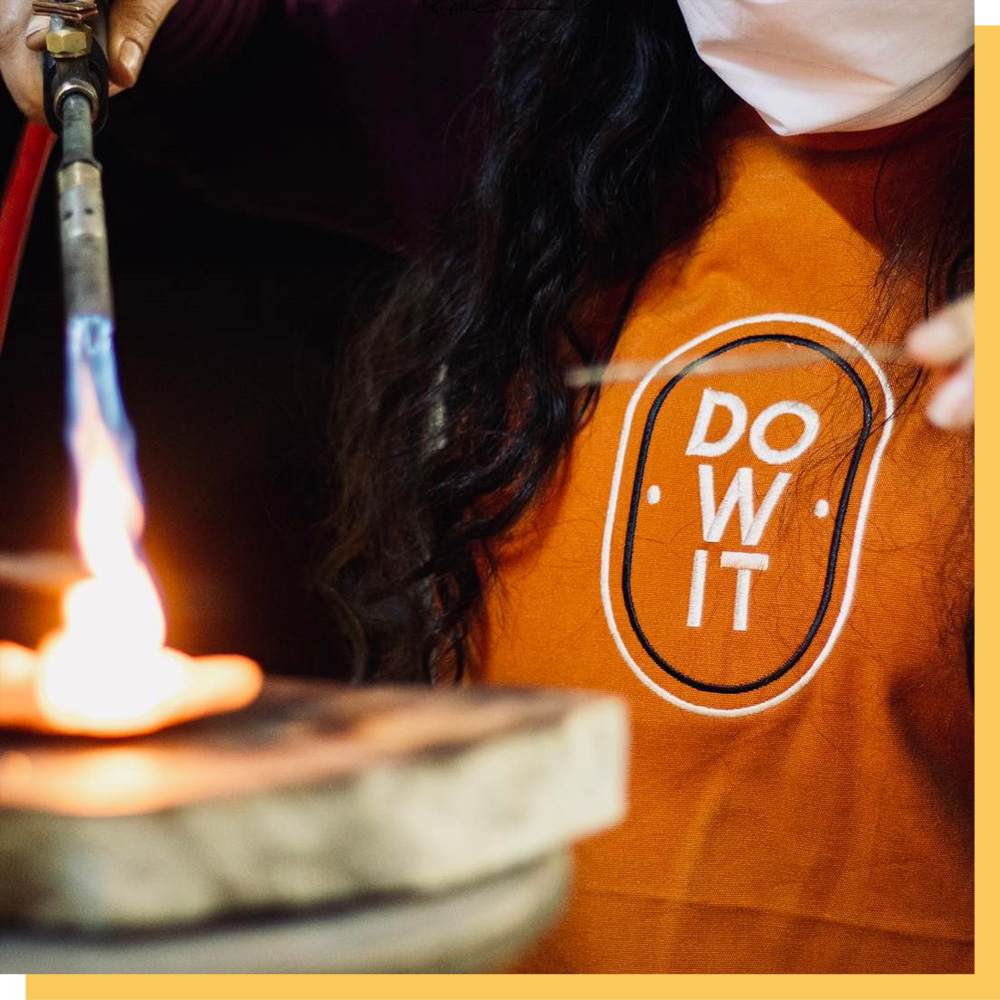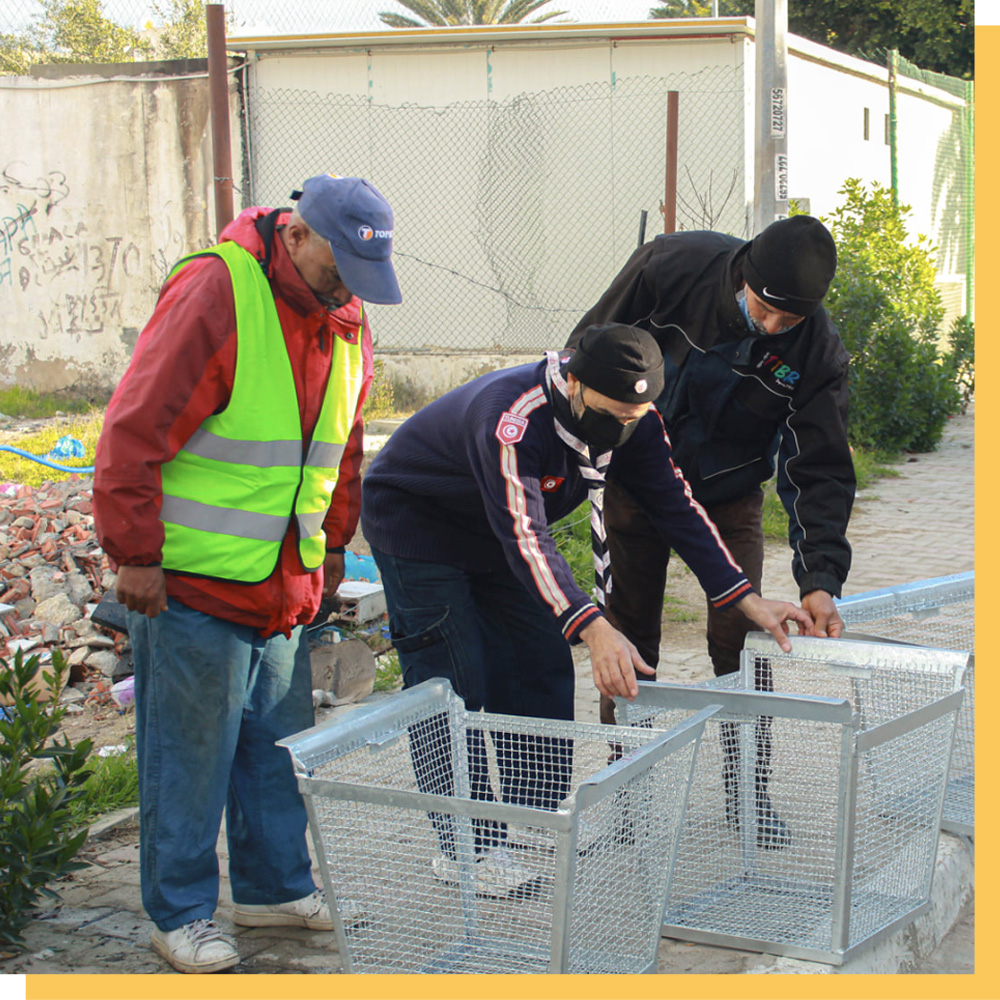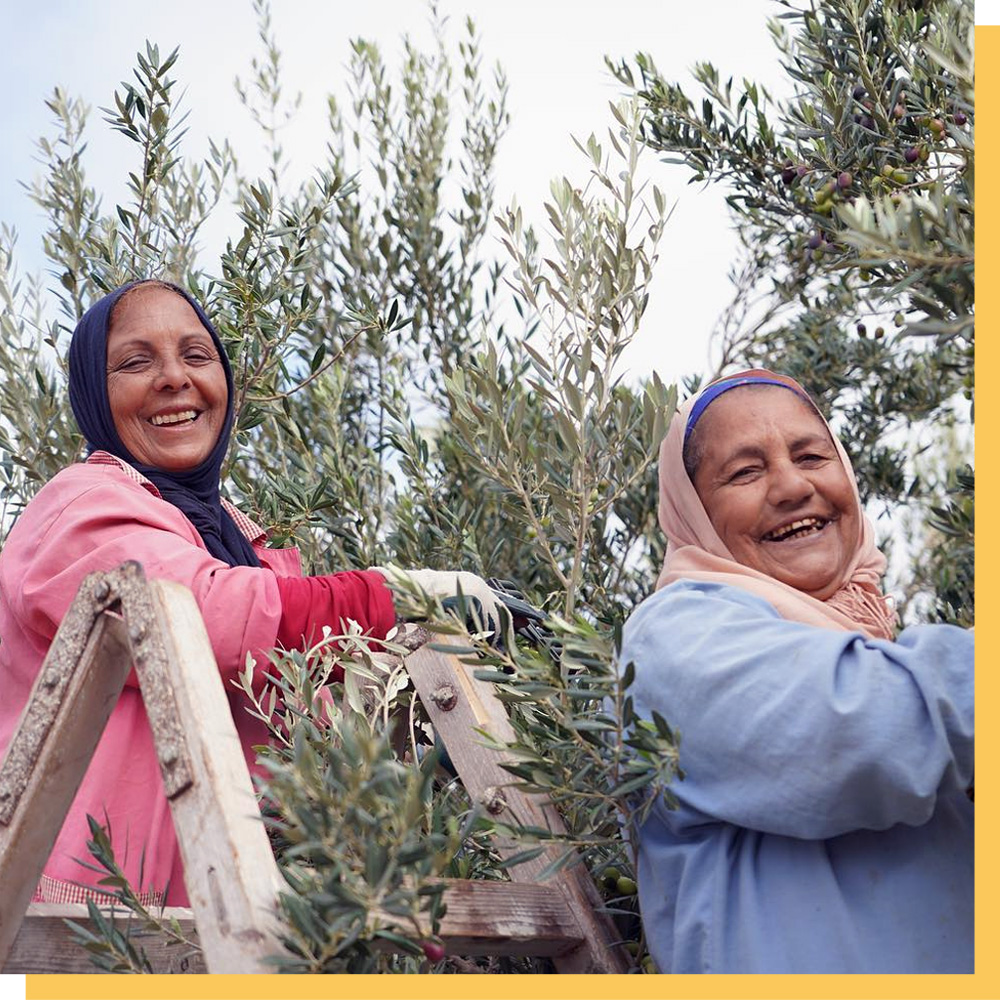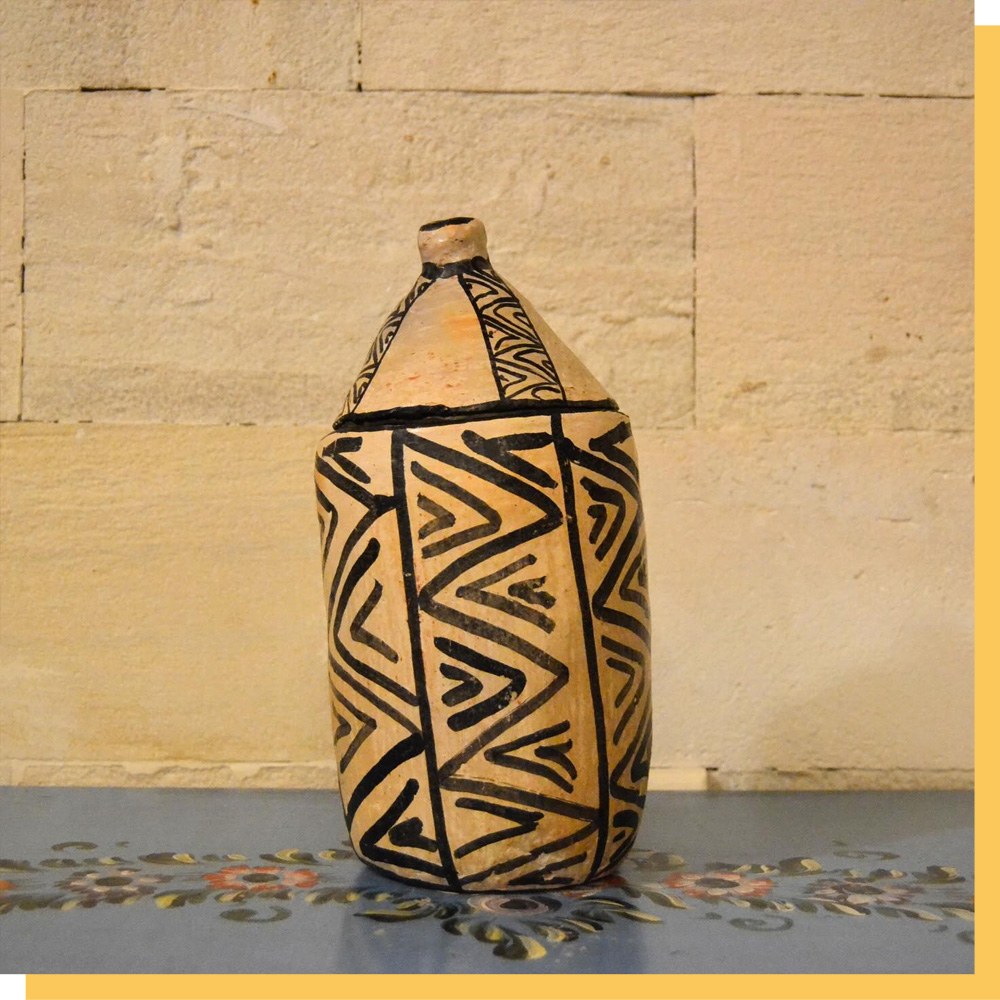Grants for Growth in Tunisia
As spring urges the flowers to bloom once more, our market building efforts in Tunisia are blossoming, too. After a thorough selection process, five social entrepreneurs were selected to receive grants that can help them scale their businesses. It marks an important step forwards in our efforts in the MENA-region.

The grant operation is a part of our EU-funded market building project Impact Together!, which aims to bolster the social economy in the MENA-region. We do this by offering direct support to existing and starting social enterprises on the ground. To maximize our efficiency, we teamed up with the local organisation Impact Partner. At the back end of last year, they issued an open call to social enterprises looking for extra funding to help set up or scale their activities. It was the first step in the aptly titled Fund Impact programme.
From the resulting 160 applications, 28 were selected to join in a three-day bootcamp where they learned about fundraising and how to prepare an investment proposal. Eventually, after this bootcamp, a shortlist of 10 social enterprises was made, who were invited to pitch to representatives of Impact Europe, Impact Partner and the DG Near of the European Commission.
At the end of the deliberations, five social enterprises were be provided a grant to take the next step in their activities. "It was not easy to make a selection, because there is a lot to be done and the social economy ecosystem needs more money to do this", adds Ahlem Ghazouani, jury member and Program Manager at Impact Partner. "For this round, we felt like we should give as much enterprises as possible a piece of the pie. We are also actively looking at leveraging our existing funds to make more people aware of how crucial it is to fund social enterprises".
For now, let's get into the five selected enterprises.
Dowit
The first one, Dowit, was rated very highly by all jury members.
If their name sounds familiar, it might be because we mentioned them quite recently in our story on how artisans take the spotlight during Ramadan. While Dowit aims to bring interest to the activities of artisans through different means, including sustainable tourism, their pitch for the Fund’Impact programme is centered around their work on Dar El Sanaa, their first collaborative factory, located in the medina of Tunis. It aims to bring together artisans, designers, artists, and other makers in a place that allows them to hone their craft, but also to share their knowledge with younger generations.
It's worth noting that this is not a niche endeavour. The craft sector is quite large in Tunisia, employing around 11% of the working population and accounting for 4,5% of GDP according to 2019 numbers.

Moreover, 85% of the workers in the sector are women, providing them with an important source of income. Still, the sector suffered tremendously from the Covid-crisis, with about 40% of businesses going bankrupt. The risk of losing this national heritage, along with thousands of jobs, is quite real.
It's what motivates Dowit in setting up the collaborative factory in Tunis, which is to be the first in a larger network of community-based manufacturing hubs in Tunisia. Jewelry makers, carpenters and woodcutters can use the shared production tools, while actively learning from one another. Outsider participants can partake in workshops and cultural activities, providing income for the artisans while also picking up practical skills of their own. And of course, there is a shop where produced goods can be sold to the public, too. Up until now, the Dar El Sanaa consists of over 160 artisans, with over 4.000 people partaking in workshops and events.
The Fund Impact programme will provide them with a grant of 100.000 dinar (30.000 euros) to help expand their collaborative factory and to showcase the potential of the sector to unemployed young people.
Wayout
A second grant was extended to Wayout. They designed and now produce the so-called ZigoFiltre, a basket-type insert that can be placed into storm drains to help collect plastics and waste that would otherwise go directly into the sewers. This is important, because an estimated 80% of marine pollution is caused by this type of trash. Moreover, the build-up of these plastics and other waste products often lead to floods in seasons of high rain. It’s expensive, too - Tunisian municipalities spend up to 30.000 euros per year trying to flush out their sewer systems.
Placing the ZigoFiltre inside the storm drains should help reduce this cost by 70%, estimates Wayout. So far, they have installed about 1.000 filters, which are projected to collect about 77 tons of waste per year. By tracking the capacity of the filters, Wayout also aims to help create optimized maintenance routes and to identify at-risk areas for targeted interventions in the future. They’ll also be providing customers with an impact report, detailing the positive effects of installing a ZigoFiltre.
The grant of 80.000 dinar (24.000 euros) will be used to help scale the enterprise, to do further research and to expand to the regions that are most impacted.

Olissey
Grant money also went to Olissey, who run a sustainable agricultural operation with additional social targets. Their acreage consists of olive trees and carob trees, that can help absorb a large amount of carbon dioxide emissions. While impressive, it’s not the only part of their operation that contributes to sustainability. By producing their own compost, they are limiting their own waste production. The trees they grow are local varieties, too, helping to preserve botanical diversity. And by using non-intensive farming methods, they make sure that the land they work on remains healthy as well.
It's not only the environment that benefits, but the local community as well. Olissey recruits seasonal workers as well as full-time workers, with a specific focus on women and youth. They train these workers, as well as other farmers in the region, in adopting best practices of responsible and sustainable farming through the publication of dedicated brochures. In doing so, they provide jobs to a vulnerable demographic while instilling a socially and environmentally sustainable mindset in the next generation.
Their grant of 40.000 dinar (12.000 euros) will be used to expand their plantation and to hire new workers, establishing a foothold for sustainable farming in the region.

Archiv'art
Archiv’art was selected by the jury, too. Their business focuses on supporting artists in generating more sales, by featuring them in their gallery, but mainly by bringing their art online. It's not a luxury, but a necessity. According to the Tunisian Ministry of Culture, only 2% of artists in the country manage to sell their artworks, with a large majority of local art remaining on the market indefinitely.
Launched in 2020, Archivart now helps more than 150 African and Middle Eastern artists live from their artworks by connecting them to different types of clients. One of their main initiatives is the Sprint Art program, the first business incubator program for emerging artists from emerging markets. It supports them in their professional growth and financial sustainability. With five cohorts in Tunisia and one in Rwanda, it now aims to expand to West Africa, targeting Senegal and Côte d'Ivoire, with a vision to become the largest community of artists from the global south.
They will be receiving a grant of 40.000 dinar (12.000 euro) to help expand their operations by hiring new staff and recruiting new artists to the platform.

Iley'com
Iley’com closes the line. Their product consists of an omnichannel marketplace solution, that enables social entrepreneurs, artisans, and artists the region to sell their eco-friendly, handmade creations online both locally and internationally. This is relevant, since an estimated 60 million African artisans typically struggle to sell online.
Iley’com steps in to facilitate national and international e-commerce for sellers in Africa. They offer artisans with training and guidance on online sales, while taking away worries about obstacles like customs issues or online payment solutions. Their products are listed on the Iley’com website, but also on well-known players like Amazon and Etsy, bringing the work of artisans to a huge market.
The allotted grant of 40.000 dinar (12.000 euros) will help Iley’com enhance the capacities and skills of 60 entrepreneurs in Tunisia. It will also go a long way towards establishing relationships with several incubators and new stakeholders.

These five social entrepreneurs are the first beneficiaries of the Fund Impact program grants. Before they receive the grant money on their accounts, Impact Partner will sit down with them to agree on a set of KPI's that are to be achieved. Once a certain level of them have been attained, the grants will be released. Both Impact Partner and Impact Europe will continue to provide guidance to the selected social entrepreneurs, making sure that their scaling process can progress efficiently.
